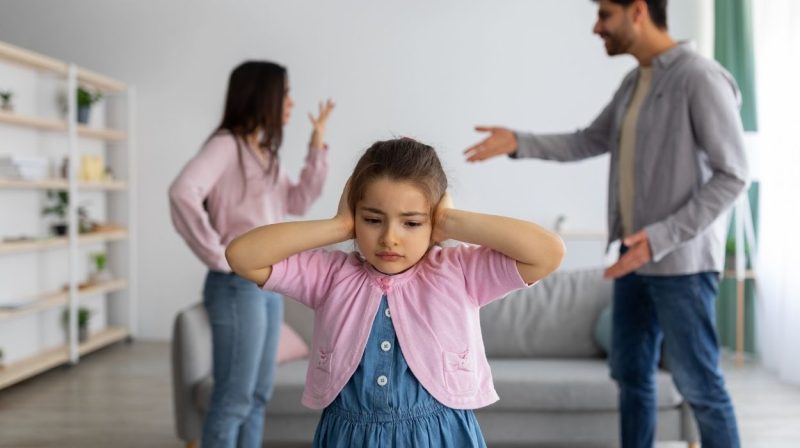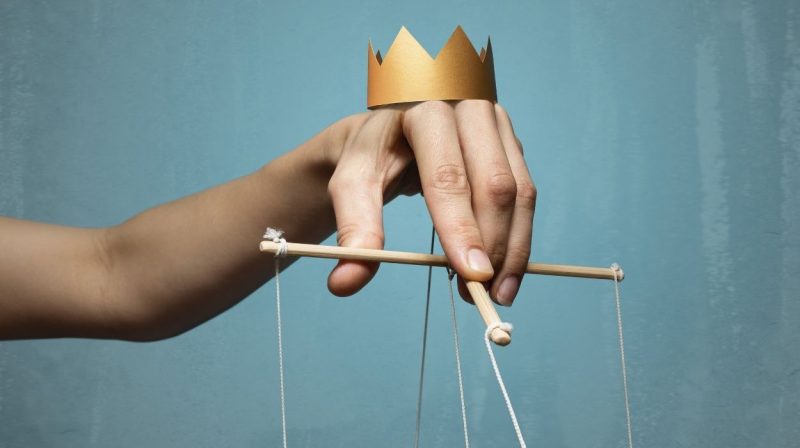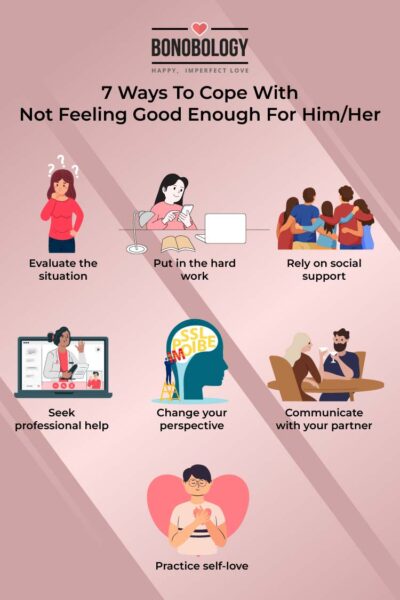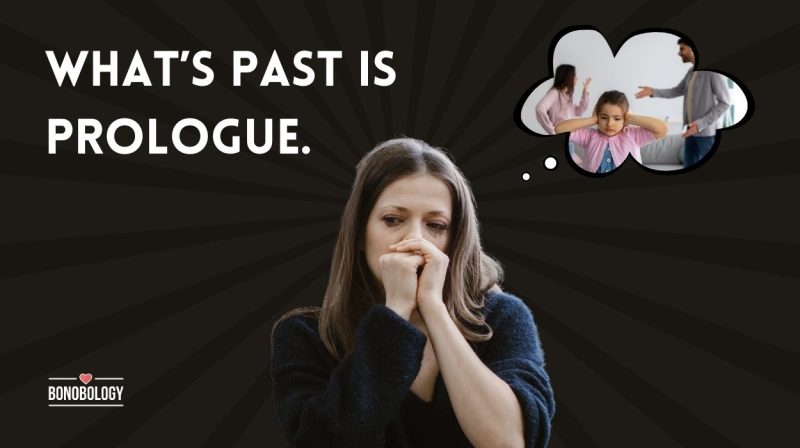Do you think your partner is out of your league? Are you wondering why they would ever date you? Feeling not good enough for him or her is emotionally exhausting, to say the least. It takes a toll on your well-being, and self-worth, making you stew in a pool of anxiety perpetually. It is imperative to understand why you might be feeling this way. A quick examination can reveal the root of your problem. This will enable you to take remedial action and help you cope with feelings of inadequacy.
We’re exploring the perils of insecurity and low self-esteem in consultation with psychotherapist Dr. Aman Bhonsle (Ph.D., PGDTA), who specializes in relationship counseling and Rational Emotive Behavior Therapy. There are a few important questions on the table and they’re common to many of our readers. Why does it feel like you don’t deserve your partner? What to do when you feel you are not good enough for someone? And is there a way to overcome these inhibitions? Let’s help you find the answers.
5 Reasons You Do Not Feel Good Enough For Your Partner
Table of Contents
What is the feeling of not being good enough for someone? Well, there are two facets to inadequacy. Firstly, the individual in question places their partner on a pedestal. The partner is perceived to be flawless; their negative qualities are minimized and positive magnified. And secondly, the individual struggles with low self-esteem or an inferiority complex. They focus on their weaknesses rather than strengths. These two combined result in a lot of stress and constant worrying in the relationship.
Dr. Bhonsle says, “There are many factors involved when someone feels like they aren’t enough for their partner. It’s essential to investigate these feelings. The person must ask, “Why is this happening? Which experiences have led me to this juncture where I am battling insecurity in the relationship?” Once the reason has been established, it becomes much easier to tackle the problem.” Take a look at the 5 reasons listed below – one of them might explain why you’re feeling not good enough for him or her.
1. It’s not them, it’s you
The word we’re looking for is projection. There’s a solid chance that what you’re feeling has little do with your partner or something they’re doing. Dr. Bhonsle explains, “Many a time, people feel inadequate for someone when they are actually struggling with low self-esteem from within. They don’t feel good enough by themselves because of how their life has turned out in one regard or another.
“And low self-esteem has a sinister quality; it spreads to all areas of your life. If a person has taken a hit at work, for instance, those feelings do not remain confined to the professional sphere only. So trace them to their origin; what you’re feeling about the relationship could have seeped in from elsewhere.” Think about what is causing you to experience these emotions. Are you someone who usually struggles with low self-esteem issues? Look in the right place and you’ll find the right answer.
2. “Why am I not good enough for my boyfriend?” No place like home
Dr. Bhonsle says, “A wise man once said, “What’s past is prologue.” Your upbringing, your childhood, and the relationship you share with your parents are decisive influences that shape your equations as an adult. Think about the institutions in your life – home, school, college, etc. How did they impact your self-image? Bullying, fat-shaming, name-calling, and abuse can cause lasting damage. Ditto with toxic parents or siblings.”
A strained or tumultuous history with either parent can spell trouble in your present relationship. A reader from Omaha wrote, “I was a victim of child abuse perpetrated by my father. For the longest time, I convinced myself that it was in the past. But each relationship that ended badly, had me wondering, “Why am I not good enough for my boyfriend?” An ex pointed out that I was carrying a lot of emotional baggage and it struck a chord with me. I decided it was time to address my past relationships, recalibrate and work certain things out in therapy.”

If you’re feeling not good enough for him or her, be sure to consider the role your parents have played in your life. Making amends with them or resolving residual turmoil will significantly uncomplicate things for you. To rephrase a popular maxim, home is where the heart is shaped.
Related Reading: What To Expect When You Love A Man With Low Self-Esteem
3. (Love) card declined
Alternatively, fear of rejection could be the reason you’re feeling not good enough for him or her. If you’ve experienced failure in love before, it is normal to have negative thoughts like “I am not good” and you’ll think of your partner as a flight risk. That they’re better than you and will leave if given the chance.
Consequently, you might find yourself walking on eggshells around them, trying to do everything right, hoping to find no signs he thinks you’re not good enough or she thinks she is out of your league. Is it a surprise that thoughts like “Why do I constantly feel like I’m not good enough for my boyfriend?” or “I feel like I’m not good enough for her” follow?
Debbie Ford, the New York Times bestselling author and life coach, wrote, “Fear keeps us rooted in the past. Fear of the unknown, fear of abandonment, fear of rejection, fear of not having enough, fear of not being enough, fear of the future – all these fears and more keep us trapped, repeating the same old patterns and making the same choices over and over again.” Your efforts toward avoiding rejection in love only serve to intensify feeling not good enough in a relationship.
4. Flashback Friday
Breakups have the power to distort our perspective on love, life, and ourselves. A bad dating history can be the root of your relationship insecurity. An ex that manipulated, gaslighted or abused you could have shaped your psyche in such a way that anything you do is never good enough for him or anyone else.
What you felt in the previous relationship could have been carried forward to this one. Dr. Bhonsle says, “Our lives aren’t organized into watertight compartments, so things spill over and get messy. When a partner makes you feel not good enough constantly, that experience can cause deep-seated fears in your mind and continue to haunt your future relationships. This often happens when someone is cheated on by their partner; the self-esteem suffers and trust issues crop up swiftly.”
A close friend once explained the effects of being cheated on. She blamed herself for the infidelity and the breakup for the longest time. This birthed a lot of insecurities with respect to dating; even in her next relationship, she kept feeling not good enough for him. So, tell us, are you still carrying the weight of your history?
5. Manipulation at play
It would be unwise to dismiss the possibility of a manipulative partner. We know how intense a power struggle in a relationship can get. Therefore, your (not-so) better half could be trying to establish their dominance by portraying that they’re obliging you by dating you. Dr. Bhonsle says, “There’s always a chance that you’re being gaslighted by your partner. They will try to make you adhere to an ideal yardstick and you’ll always fall short on some parameters, constantly making you feel like you are not good enough.”

You will be made to feel like you can do better in the relationship. Some of the hallmarks of manipulations are:
- Constant policing
- Criticism
- Negative remarks
- Mocking your physical appearance
- Making you compare yourself with others
“This is done to lower your self-worth and to make you wonder, “Why am I not good enough for him?” They want you to seek their constant approval. In this case, your low self-esteem is induced deliberately,” he adds. Take Bonobology’s Am I being gaslighted? quiz to evaluate your situation better.
That brings us to the end of our first segment which has (hopefully) helped you identify the reason you’re feeling not good enough for him or her. It’s time to understand how you can address this issue. We’ve curated a list of 7 strategies that will lend a much-needed helping hand.
Related Reading: Gaslighting In Relationships – 7 Expert Tips To Identify And 5 Ways To End It
7 Ways To Cope With Not Feeling Good Enough For Him/Her
Coping with inadequacy is a daunting process because it demands a lot of patience and perseverance. Please remember that healing does not occur overnight; like any process, it has its fair share of ups and downs. But if you stay the course and put in the hard work required, you’ll stop wondering things like “Why am I not good enough for my boyfriend?” or “Why do I keep feeling like I’m not good enough for her?” Here’s a thumb rule: consistency is key when you’re trying to resolve emotional problems (read: emotional baggage.)
Dr. Bhonsle says, “There’s no template you can follow. Different things work for different people and it’s your responsibility to explore and find a path that’s compatible with who you are as a person. Don’t dismiss any suggestions right away because the effectiveness of some of these methods may take you by surprise. Keep an open mind, always.” Without further ado, let’s look at the 7 best ways of coping with not feeling good enough for him/her.

1. Investigate and evaluate
The first step is assessing the situation in its entirety. It must be done with honesty (to yourself) and objectivity and don’t compare yourself to others. Dr. Bhonsle explains, “Take stock of where you stand and do so in the light of facts, not emotions. Work with the information you have at hand and rely on hard evidence.
“What are your achievements? They need not be things like awards and trophies. Maybe you read a lot, maybe you watch good films. Perhaps you’re a great cook or have a knack for dressing well. Anything can be your strong suit. Think of what comprises you and how far you have come. Then find out where this self-doubt is coming from. Why are you still asking questions like “Why am I feeling like I’m not good enough for him?” Who or what has made you lose sight of your goodness, your value? Is there something lacking somewhere? If you succeed in diagnosing the area that needs change, it’s great news.”
This will be a great exercise in introspection. You will emerge from this practice having gained clarity about the nature of your predicament. This is one of the first things to do if you’re feeling unappreciated in the relationship.
2. Walk the talk when you are feeling not good enough for him
Once you know what’s missing, nothing should stop you from working on it. Say, your low self-esteem stems from your average progress at work. You should, in that event, channel your energy toward doing your job well. If your breakup with a friend is what’s causing a sense of insecurity, work on building stronger friendships. In a nutshell, refurbish whichever sphere of life you’re unhappy with.
You can’t seek fulfillment from your partner or a romantic relationship alone. There has to be more to life than that. You are responsible for your own happiness. Leaving it in the hands of someone else will make you feel not good enough in a relationship frequently. It’s important to realize that an insecure person becomes exhausting to date.
While you’re thinking, “Why do I constantly feel like I’m not good enough for my boyfriend?”, your current partner’s tired of reassuring you. Dr. Bhonsle adds, “If you don’t take charge of things, you will morph into a clingy, overly sensitive individual who makes life difficult for themself and their partner. Slowly but surely, you’ll start taking everything personally. It’s better to tweak whatever needs tweaking and become a self-fulfilled person.”
Related Reading: Obsessive Love And Clingy Affairs – Early Signs And Dealing With It
3. Call in reinforcements
Moments of (emotional) crisis demand extra aid. So, what to do when you feel you are not good enough for someone? Fall back on your social support system.
- Call your platonic soulmate at home and cry a river if you must
- Go out to dinner with your group and socialize
- Visit your parents and talk to them about your problems, and the negative thoughts you are having
Being in the company of others will make you realize how valuable these connections are. Your friends and family will give you honest feedback, constructive criticism, and truly helpful advice, instead of pointing fingers. They have the advantage of objectivity on account of being a third party.
They also have your best interests at heart. Listen to what they have to say about your relationship and actually heed their advice. Isolating yourself when you’re in self-doubt or feeling vulnerable is not a good course of action. These people will have your back, no matter the circumstances. So, don’t hesitate to turn to them for help when you most need it.

4. Seek professional help
Dr. Bhonsle says, “Reaching out to a mental health expert can prove to be quite helpful. They can help you navigate this rough patch in the relationship smoothly. You can either opt for individual counseling and work on yourself or you can go for couples therapy with your partner. Therapy is a safe space where people can express themselves freely. It goes a long way in contributing to the quality of the life they lead.”
At Bonobology, we offer professional help through our panel of licensed counselors and therapists. They can guide you on the path to recovery and equip you with the correct emotional tools to handle your quandary. You can connect with a professional from the comfort of your home; healing is a click away. We are here for you as you battle feeling not good enough for him or her.
5. Update your system
We mean, shift your perspective. False optimism and toxic positivity are definitely not what we’re advocating. But looking on the bright side can work wonders. Dr. Bhonsle says, “We tend to think of ourselves in terms of what we lack. This is a negative lens because it makes us dwell on our flaws or weaknesses. A great way of building self-esteem is by changing the way we perceive and talk to ourselves.
“Instead of directing critical commentary like you are not good enough inwards, we can celebrate little achievements and be appreciative of the good we bring to the table. The same is applicable in the context of a relationship. It takes two people to make a connection work. What is it that you offer? How do you enrich your partner’s life? Replace your old questions like “Why am I feeling like I’m not good enough for him?” and “Is she really too good for me?” and start focusing on the positives.”
Related Reading: Expert Suggests 9 Reasons You Feel Insecure In Your Relationship
6. What to do when you feel you are not good enough for someone? Communicate, mate
Please, and we cannot emphasize this enough, talk to your partner. No relationship problem can be resolved without open communication. If you are feeling not good enough for him or her, address the issue directly. Tell them how they can help you. Explain why you are feeling like you are not good and whether they play a role in reinforcing it or not. An honest conversation will make things so much easier for you both. Please don’t make rookie communication mistakes.
When your partner makes you feel not good enough through a joke or a comment, then tell them so. If you choose to keep it to yourself, there’s a high chance that you’ll start resenting your significant other for not catching on. They (naturally) will not have an idea of what’s going on with you. Dr. Bhonsle explains, “It’s always better to keep your partner in the loop. Make sure they know where you stand, even if your conflict is personal. Work as a team and you will surely prevail.”
7. Self-love supremacy
Oscar Wilde, in his renowned play An Ideal Husband, wrote, “To love oneself is the beginning of a lifelong romance.” And we could not agree more. If you don’t feel good enough for yourself, then you will never feel good enough for him/her. Cultivate habits of self-love and self-care. Eat well, exercise, and dedicate a few hours to doing something you love. Practice mindfulness through yoga, meditation, and journaling. Work toward accepting yourself and reaching a place of peace and contentment.
Key Pointers
- It is important to introspect and get to the source of your insecurities if you feel you’re not good enough for your partner
- Prioritize communication with your partner and work on improving your relationship with yourself
- If you’re not able to make headway on your own, seeking help from a mental health professional can be immensely helpful
Relationships are as healthy as the people who make them. If you’re your best version, the bond you share with your partner will flourish by extension. So, become your own best friend and treat yourself well. You will notice a difference in your conduct (and mindset) in a short span of time. No more relying on external sources of validation. No more self-hatred. And no more feelings of inadequacy.
Before we bid adieu, we want to let you know that things will pan out for the best. The path before you is long and challenging but you have the requisite resources to make it to the end. You are loved, and you are enough. Come back to us whenever you need and be sure to drop a comment below as we love hearing from you. Goodbye and see you soon.
This article has been updated in November 2022.
FAQs
There are 7 coping strategies that can help you overcome feelings of inadequacy. You need to evaluate the situation, put in the hard work in certain areas, seek professional help, rely on your social support system, communicate with your partner, and cultivate habits of self-love.
A lot of these feelings have to do with low self-esteem. You need to trace their origin and work through the emotional baggage with or without professional help.
What Does it Mean When a Guy Says ‘I Am Not Good Enough For You’?
Your contribution does not constitute a charitable donation. It will allow Bonobology to continue bringing you new and up-to-date information in our pursuit of helping anyone in the world to learn how to do anything.
Ask Our Expert
You must be Logged in to ask a question.



Featured
How To Get Over Trust Issues — A Therapist Shares 9 Tips
Learn How To Forgive Yourself For Hurting Someone You Love
How To Find Peace After Being Cheated On — 9 Tips From A Therapist
How To Forgive A Cheating Husband: 15 Helpful Tips
35 Disturbing Signs Of Gaslighting In A Relationship
What Is Narcissistic Ghosting And How To Respond To It
‘My Husband Starts Fights And Then Blames Me’: Ways To Cope
How To Rebuild Your Life After The Death Of A Spouse: 11 Expert-Backed Tips
My Husband Died And I Want Him Back: Coping With Grief
“Am I Unlovable” – 9 Reasons You Feel This Way
11 Signs Your Girlfriend Was Sexually Abused In The Past And How To Help Her
Coping With Breakups: The Must-Have Breakup Apps For Your Phone
13 Heartbreaking Signs You Are Wasting Your Time Trying To Get Your Ex Back
Why Are You Obsessed With Someone You Barely Know — 10 Possible Reasons
33 Phrases To Shut Down Gaslighting And Silence Gaslighters
The Emotion Wheel: What It Is And How To Use It To Build Better Relationships
The Role Of Supportive Relationships In Addiction Recovery
7 Signs You Have A Verbally Abusive Wife And 6 Things You Can Do About It
Mommy Issues In Women – Meaning, Psychology, And Signs
Lovesickness — What Is It, Signs, And How To Cope